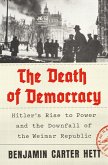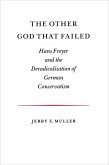AT the close of the nineteenth century and the opening of the twentieth, several efforts were made, both in Europe and America, towards the prevention of future wars, by substituting legal methods for brute force in the settlement of international disputes. It is worth while to recall the preliminary steps that some high-minded rulers took in this direction. Tsar Nicholas invited foreign governments to the first of those peace conferences which met at the Hague. Successive presidents of the United States, for their part, strove to obtain an immediate practical result by means of treaties concluded with various nations. The object of these treaties was to submit to a court of arbitration any disputes that might arise among the signatories. The two Hague Conferences failed, indeed, to realize the ideal aims which their promoters had in view. They were unable to establish compulsory arbitration. On the other hand, they organized procedure, and set up machinery, such as the permanent court of arbitration, to facilitate the peaceful settlement of disputes. They succeeded, to some extent, in regulating the employment and checking the abuse of certain weapons and methods of warfare, and in drawing up a sort of legal code for belligerents. The international Hague Conventions have justly been called a charter of rights for the nations in war time. Unfortunately, the observance of these rules cannot be enforced by any court of justice, and depends entirely upon the honesty or good will of the Powers that have accepted them.
Bitte wählen Sie Ihr Anliegen aus.
Rechnungen
Retourenschein anfordern
Bestellstatus
Storno









